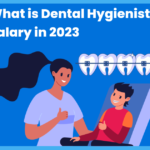Are you looking for some information about Dental Hygienist Programs at this time. we add all new and updated information in this blog.
As a dental hygienist, you will collaborate with dentists to provide essential preventative care and patient education.
However, before beginning this exciting new chapter of your life, you must first complete a rigorous dental hygienist program.
This article will provide all the essential information about dental hygienist programs in 2023, from prerequisites to different program types. So let’s get started!
- Essential Prerequisites for Dental Hygienist Programs
- Learning About Different Dental Hygienist Programs
- Overview of Dental Hygienist Program Curriculum
- Dental Hygienist Career Prospects: Job Growth and Salary Growth
- Dental Hygienist vs. Dental Assistant Program: Which Is Best for You?
- Dental Hygienist Programs in [State/City]: Your Guide to Local Schools
- How Much Does a Dental Hygienist Program Cost?
Essential Prerequisites for Dental Hygienist Programs
What Are The Requirements?”
Before applying to a dental hygienist program, there are specific prerequisites you must fulfill. While these may vary depending on the school and program, some standard requirements include:
- High school diploma or GED
- Completion of specific college-level courses (such as anatomy, microbiology, and chemistry)
- Minimum GPA (usually around 2.5-3.0)
- Passing a standardized test such as the ACT or SAT
- Personal essay or statement of purpose
- Letters of recommendation
It is essential to know that each program may have specific prerequisites, so consult the school you are considering attending for more details.
Learning About Different Dental Hygienist Programs
Are you interested in exploring different dental hygiene programs? Check out some options here!
In terms of dental hygiene courses, there are a variety of kinds to pick from. Here’s a brief description of each one:
Associate’s degrees typically last two years to finish, and award you an associate’s degree in dental hygiene.
Bachelor’s degree programs typically run for four years before completing which leads to the bachelor’s diploma in dental hygiene.
Master’s degrees: Although less common they usually require an undergraduate diploma in dental hygiene or a related field.
Overview of Dental Hygienist Program Curriculum
No matter which program type you select, dental hygienist programs typically follow a similar curriculum. Here’s an overview of some standard courses you can expect to take:
Anatomy and Physiology: This course offers an in-depth exploration of the human body, including its structure and function.
Microbiology: This course examines microorganisms and their consequences on human health.
Dental Radiography: This course instructs students on how to take and interpret dental X-rays.
Oral Pathology: This course examines diseases and disorders of the oral cavity.
Pharmacology: This course gives an in-depth knowledge of drugs and their effects on the human body.
In addition to these courses, dental hygiene students will take classes on theory, patient management, and clinical practice.
Dental Hygienist Career Prospects: Job Growth and Salary Growth
According to the Bureau of Labor Statistics, employment for dental hygienists is projected to grow at an annual rate of 9% from 2021-2031 – faster than the overall job growth.
This trend can be attributed to an aging population and an increasing emphasis on preventative dental care.
As for salary, dental hygienists earned an average of $77,090 annually in May 2021. However, this number may differ depending on location, experience level, and employer.
Dental Hygienist vs. Dental Assistant Program: Which Is Best for You?
Understanding the dental field requires recognizing the differences between dental hygienists and dental assistants, as their roles vary considerably.
Dental assistants are primarily the right-hand persons to dentists. They handle tasks like taking X-rays, ensuring instruments are sterilized, and assisting during dental procedures.
The pathway to becoming a dental assistant is relatively quick, often not requiring a college degree and with training that can be wrapped up in about a year.
Dental hygienists, in contrast, have a more autonomous role. They focus on preventive care, educating patients about oral health, and often work independently.
To step into this role, one needs a dental hygiene degree and some hands-on experience. The educational journey is more extensive, typically spanning two to three years, delving into subjects like anatomy, nutrition, radiography, and periodontics.
So, which path suits you? If you’re drawn to direct, hands-on tasks and prefer a shorter training period, a dental assistant role might be your calling.
However, if you’re looking for a role with more autonomy and are ready for a longer educational commitment, a career as a dental hygienist could be the perfect fit.
Dental Hygienist Programs in [State/City]: Your Guide to Local Schools
Suppose you’re considering a dental hygienist career. In that case, one of the first steps will be finding an accredited program that meets your needs.
Fortunately, many schools across America offer accredited dental hygiene degrees that can give you the knowledge and tools needed for success in this field.
To help you get started, here is a guide to dental hygienist programs in various states and cities:
Dental Hygienist Programs in California
The University of Southern California Herman Ostrow School of Dentistry: This program offers a Bachelor of Science in Dental Hygiene that can be completed within four years.
Loma Linda University School of Dentistry: This program offers a Bachelor of Science in Dental Hygiene that can be completed in three years.
Diablo Valley College: An Associate of Science in Dental Hygiene can be earned within two years from commencement.
Dental Hygienist Programs in New York State
New York University College of Dentistry: This program offers a Bachelor of Science in Dental Hygiene that can be completed within four years.
New York City College of Technology: This associate degree program offers an Associate in Applied Science in Dental Hygiene that can be earned within two years.
Erie Community College: This program offers an Associate of Applied Science in Dental Hygiene that can be completed within two years.
Dentist Programs in Texas
The University of Texas School of Dentistry at Houston: This program offers a Bachelor of Science in Dental Hygiene that can be completed within four years.
Coastal Bend College: This associate’s program offers an Associate of Applied Science in Dental Hygiene that can be earned within two years.
Amarillo College: This program offers an Associate of Applied Science in Dental Hygiene that can be completed within two years.
Florida Dental Hygienist Programs
University of Florida College of Dentistry: This program offers a Bachelor of Science in Dental Hygiene that can be completed within four years.
Broward College: Offering an Associate of Science in Dental Hygiene that can be earned within two years.
Valencia College: This program provides an Associate of Science in Dental Hygiene that can be completed within two years.
Dental Hygienist Programs in Illinois
Southern Illinois University: This program offers a Bachelor of Science in Dental Hygiene that can be completed within four years.
Prairie State College: The Associate of Applied Science in Dental Hygiene can be earned within two years at this college.
Harper College: This program offers an Associate of Applied Science in Dental Hygiene that can be completed within two years.
How Much Does a Dental Hygienist Program Cost?
The cost of a dental hygienist program varies based on the school and location. On average, you can expect to pay between $6,000 and $35,00 for this profession’s tuition, fees, and supplies.
However, several factors can influence the cost of your program, including:
Whether the program is offered at a public or private institution, whether you live in-state or out-of-state, and whether or not you qualify for any scholarships, grants, or financial aid – regardless of type – can make all the difference when applying.
Research the costs of various dental hygienist programs in your area and consider your financial aid options to ensure you can afford the one best suited to you.
Thanks For Reading This Blog Till Here


